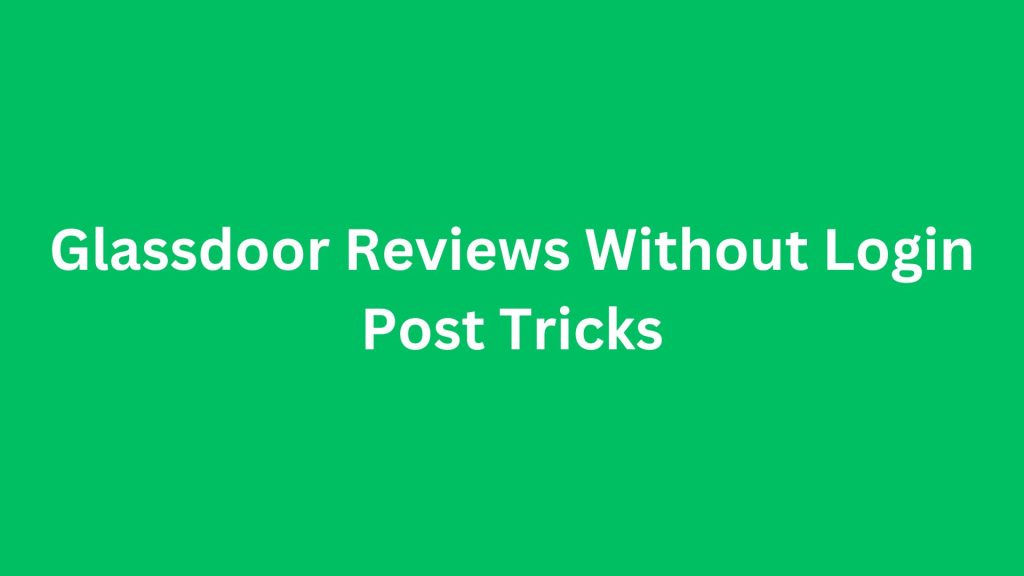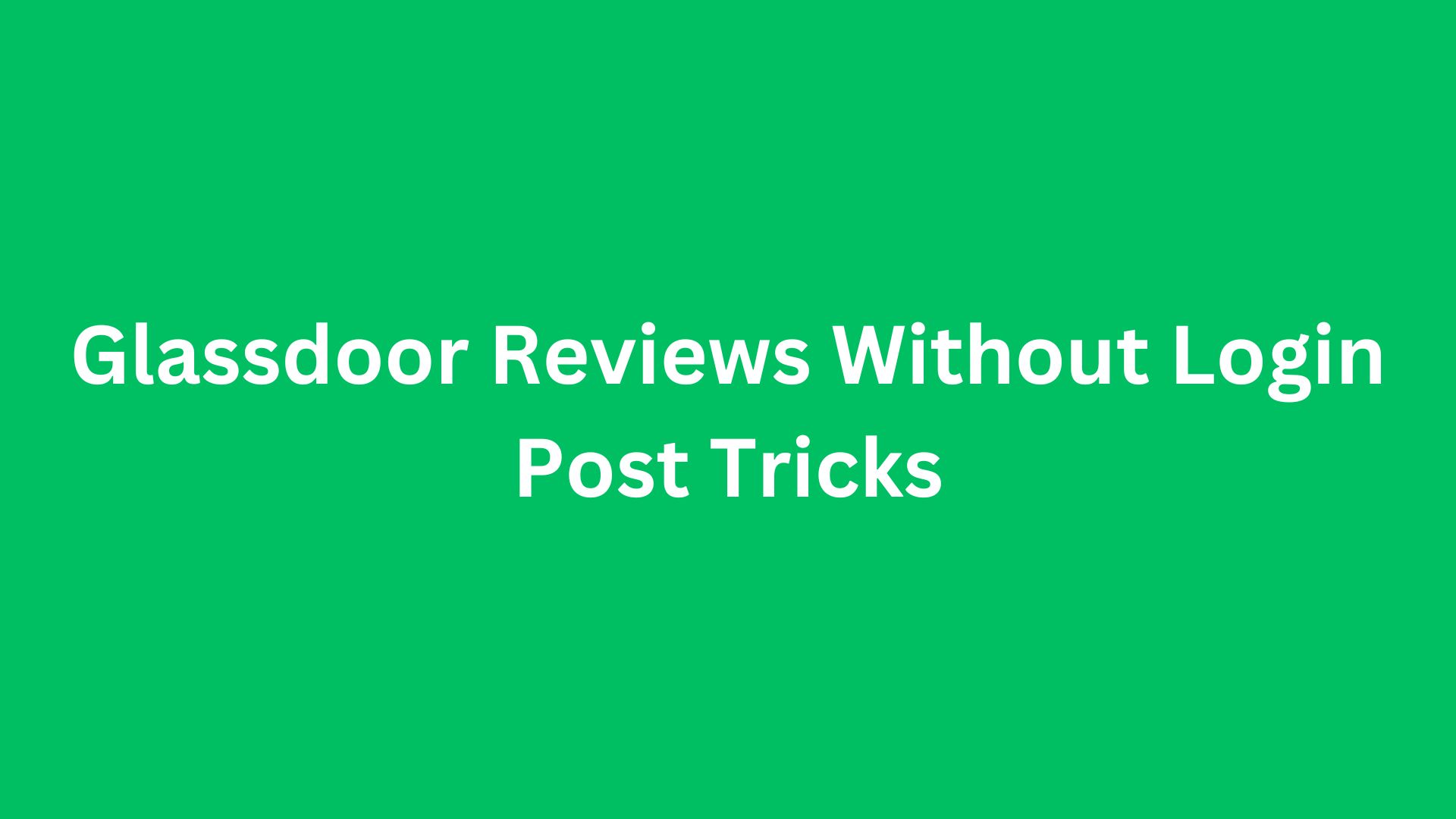Introduction To Glassdoor And User Accessibility
Welcome to our deep dive into the world of employment reviews and job insights, where Glassdoor stands as a pivotal platform. This section explores the nuances of user accessibility and how it shapes the job-hunting experience. Navigating through company reviews, salary data, and interview questions without the barrier of login requirements is a topic of interest for many users. We’ll unravel the complexities of Glassdoor’s platform and how recent changes impact the accessibility of valuable workplace insights.
Understanding Glassdoor’s Platform
Glassdoor emerges as a comprehensive repository for employee-generated content regarding organizations worldwide. The platform promises transparency and empowers job seekers with freely shared information on company cultures, compensation packages, and management practices. While traditionally known for its open-access policy, the platform has evolved, occasionally prompting users to sign in to benefit from its resources fully.The Shifting Landscape Of Access: Login Requirements
Recent years have witnessed a shift in accessibility on Glassdoor. In a move that sparked discussions about user convenience and data privacy, the platform altered its accessibility policies, leading to a mandatory login to view full reviews and salaries. This establishment of barriers has its implications:- Data Privacy Concerns: Users may hesitate to provide personal information to access content.
- User Experience: The additional step could deter swift access to desired information, impacting overall user satisfaction.

Impact Of Restricting Reviews To Logged-in Users
The Impact of Restricting Reviews to Logged-in Users is an insightful development in the digital transparency sphere. Online platforms like Glassdoor are gateways for employees and job-seekers alike to share and access invaluable company reviews. But when these platforms require users to log in before submitting or viewing reviews, it changes the dynamics of information accessibility. The implications of this move on user behaviour and trust in the platform create an intriguing discussion as businesses and individuals navigate the digital landscape searching for reliable company insights.
The inclusion of a login requirement holds the promise of a more authenticated environment yet faces a counterbalance with concerns over user privacy and a potential dip in the number of contributors. The crux of these pros and cons forms a critical battleground in how freely and securely information flows.
Reasons Behind The Login Requirement For Reviews
The inception of login requirements for reviewing companies on Glassdoor isn’t without merit. Boldly stepping into the realm of accountability, these reasons encompass both the desire to elevate the quality of the content and safeguard the integrity of the reviews. Highlights of the factors necessitating this login curtain include:- Authenticity: Ensuring reviewers are real people helps mitigate fake or fraudulent postings.
- Quality Control: Logged-in users are likelier to leave thoughtful reviews as there’s a level of traceability.
- Privacy Protection: A login requirement helps manage personal data and complies with privacy regulations.
- Engagement: Registered users are more likely to be engaged and active contributors to the community.
Pros And Cons Of Restricted Access To Glassdoor Reviews
Treading the lines between transparency and accountability leads us to weigh the advantages and disadvantages of restricted review access. Each angle presents a set of considerations for users and companies alike.| Pros | Cons |
|---|---|
|
|
Navigating Through Restrictions And Alternative Solutions
Exploring Glassdoor reviews can be critical in understanding a company’s work environment before applying for a job or accepting a job offer. Glassdoor’s treasure trove of employee insights and salary information is valuable. However, direct access to this content often hits a roadblock as the site requires users to log in. In the quest to access Glassdoor reviews without login restrictions, one must consider the technical, legal and ethical aspects of bypassing such limitations, alongside discovering potential alternatives for obtaining the information needed. Understanding the legal and ethical implications of attempting to sidestep login requirements is crucial. Glassdoor has its policies and terms of service that users agree to upon creating an account. Ignoring these terms can lead to many consequences, from temporary bans to legal actions, especially if proprietary information is accessed or shared without authorization. Therefore, it is paramount to consider these aspects before looking into alternative methods to access the desired content.- Secondary Websites: Some websites compile company reviews from various sources, including Glassdoor, potentially offering a peek into the employee feedback you’re seeking.
- Social Media and Forums: Current and former employees often share their experiences on social media platforms or forums, providing another avenue to gauge company culture.
- Networking: Directly reaching out to employees or using one’s professional network can yield honest reviews and bypass the need for Glassdoor altogether.
- Company Events: Attending open houses, career fairs, or industry meetups can provide insights and opportunities to ask questions in person.
